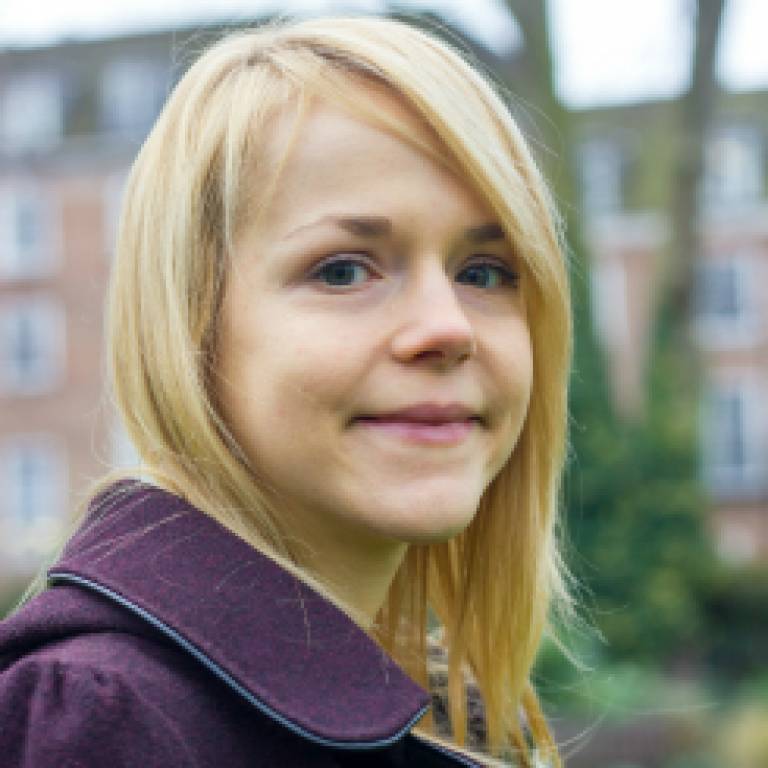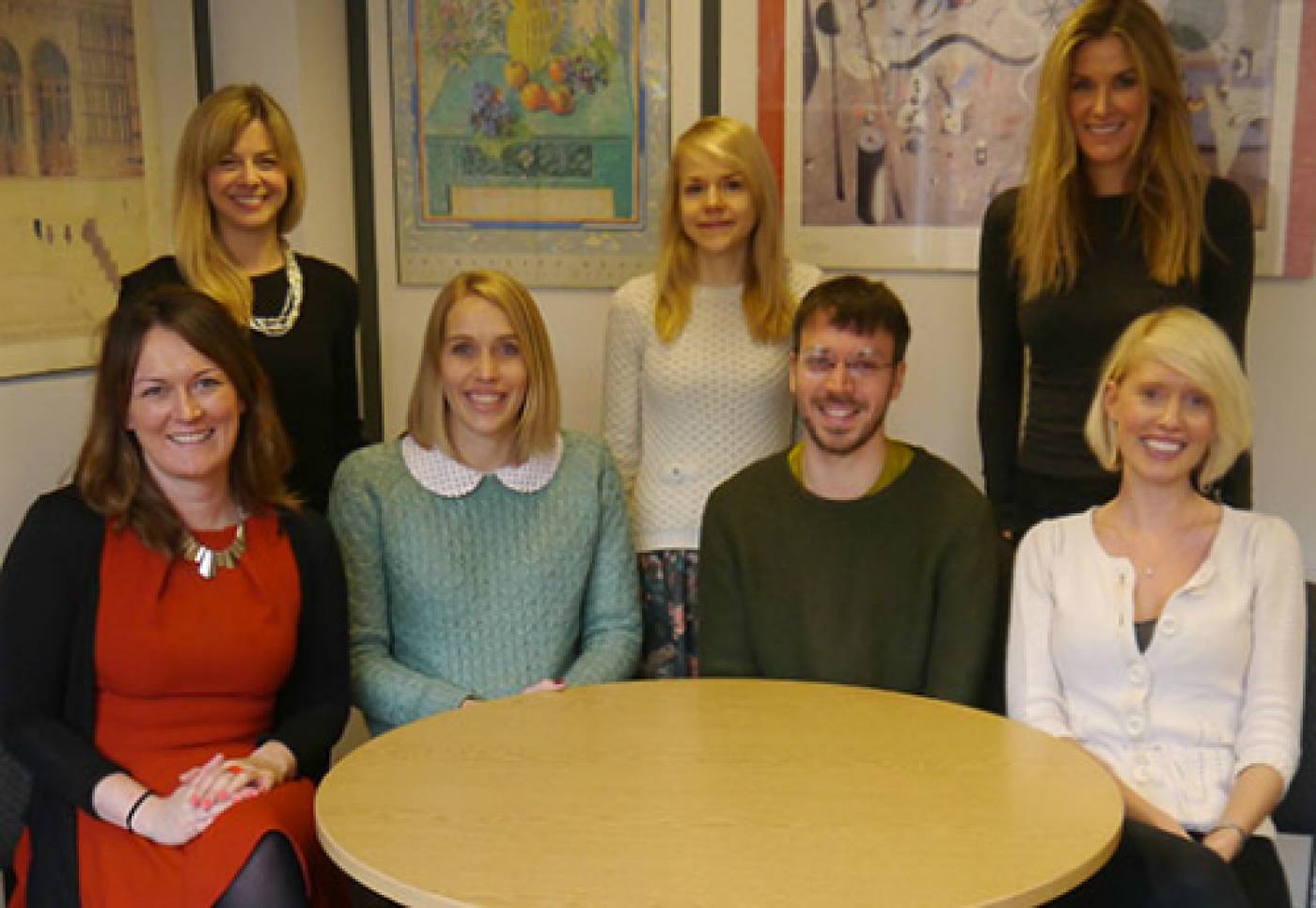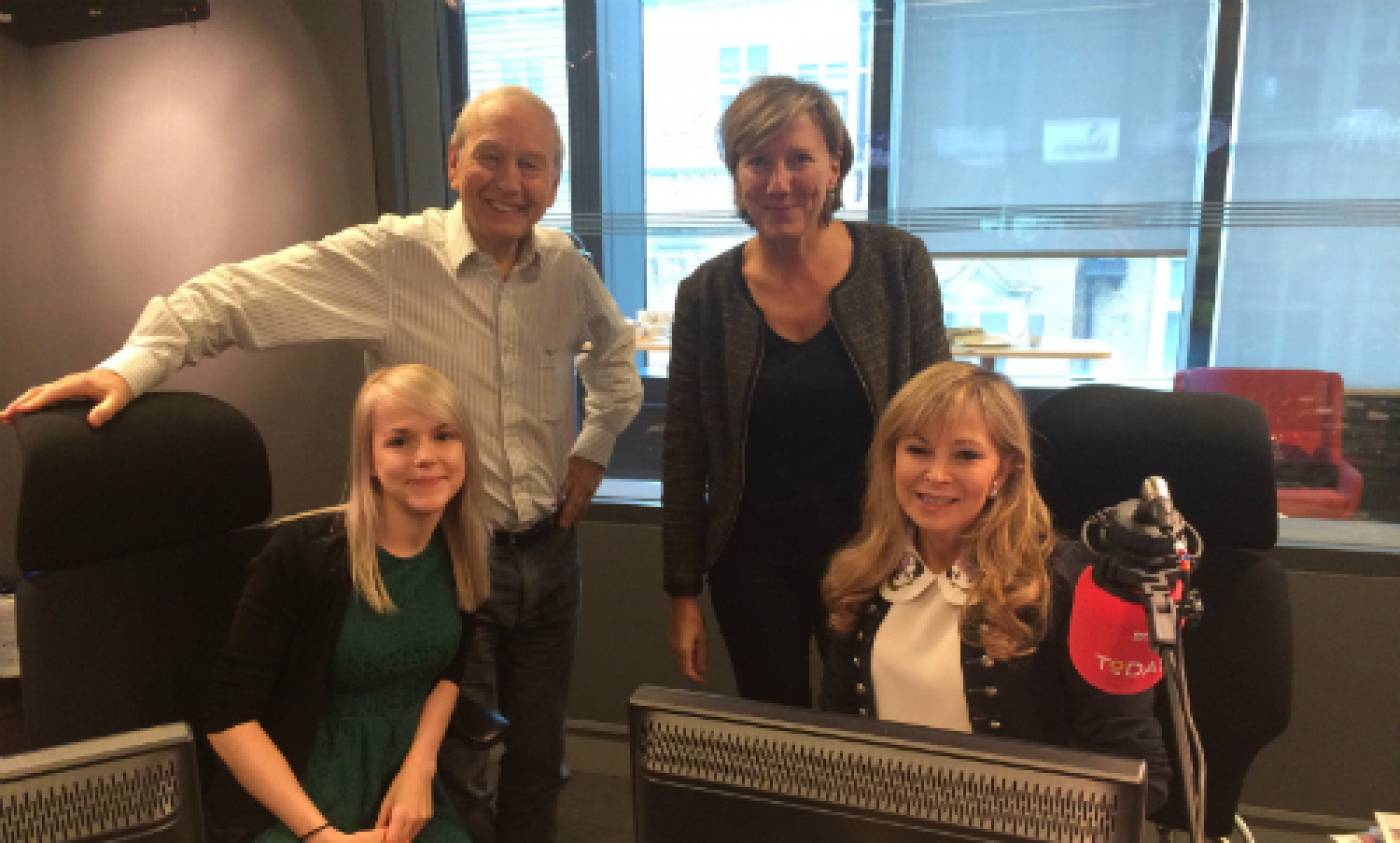Seven questions with Andrea Smith
30 November 2016
This week, meet Andrea Smith, a PhD student based in the UCL Health Behaviour Research Centre, who is part of the
 geministudy.co.uk/people2.html" target="_self">Gemini study - the biggest study of the genetic and environmental effects on appetite and growth ever to be undertaken. Andrea recently appeared on BBC Radio 4's Today Programme discussing her research examining why fussy eating in toddlers is partly down to genetics.
geministudy.co.uk/people2.html" target="_self">Gemini study - the biggest study of the genetic and environmental effects on appetite and growth ever to be undertaken. Andrea recently appeared on BBC Radio 4's Today Programme discussing her research examining why fussy eating in toddlers is partly down to genetics.
Research project: The Gemini study - Andrea's PhD specifically focuses on the genetic and environmental aetiology of food and drink preferences, and relationships with weight
Department: UCL Epidemiology and Public Health
Members of the Gemini team: Dr Clare Llewellyn, Dr Abi Fisher, Dr Alison Fildes, Hayley Syrad, Andrea Smith and Moritz Herle.
Tell us more about your research project:
My PhD project aims to establish the relative importance of genetic and environmental factors in shaping eating behaviours and food and drink preferences, and how these are related to body weight.
I use data collected from two large
twin studies, one called Gemini which is run by our team at UCL and a second
one called the Twins Early Development Study (TEDS) at Kings College London.

Twin studies are often described as the perfect 'natural experiment' to
investigate how nature and nurture influence differences between people. This method compares how much identical and non-identical twins
resemble each other within a pair for a specific trait.
If identical twin pairs are more similar than non-identical twins, then genetic effects are contributing to the increased similarity because the only difference between the two types of twins is that identical twins are twice as similar genetically. Because we also assume that twins are raised in the same home environment, we can also use twin studies to quantify whether it is the environment that twins experience in the home or their unique experiences (not shared with their co-twin) that are more important in influencing the expression of certain behaviours.
Using this study design, I have been
able to show a sizeable genetic influence on individual variation in food and
drink preferences and that shared environmental factors between siblings (e.g.
the household or school setting) no longer significantly influence these
preferences once youngsters transition into adulthood.
This suggests that factors initially influencing these preferences in adolescents while they were still living with their parents become gradually displaced by others in the youngsters proximal environment as they become more autonomous. These influences include the university cafeteria, the foods that their friends eat or the food and drinks commonly available in supermarkets.
What makes it so important (and interesting)?
My research has demonstrated that food
and drink preferences are roughly equally influenced by genetic and unique
environmental factors. Previous studies have documented that preferences are
key upstream determinants of actual intake and are easier to measure.
It is
also well-established that poor dietary choices are linked with an increased
risk of ill health, as well as obesity. Higher preferences for more
energy-dense foods and drinks might increase risk of becoming overweight.
Advancing our understanding on the factors which influence these preferences, especially in the context of the current obesity epidemic, provides new insights on how we might improve these modifiable risk factors for poor health.
So far my research suggests that efforts to improve adolescent nutrition may be best targeted at the wider environment, such as food manufacturers, rather than at the home environment to achieve effective and lasting improvements in youngster's dietary choices.
Researchers can use
these findings to advance the development of behavioural modification
programmes to actively shift food and drink preferences towards healthier
choices.
Policy-makers can make effective policy, if they understand the
importance of industry regulation in alleviating the obesogenic pressures of
the current food environment.
Commercial sector companies can use these findings to advance their upstream reformulation efforts to improve the nutritional quality of their products.
What has been a personal highlight so far?
The Gemini team recently published an
important study in the Journal of Child Psychology and
Psychiatry which gained a lot of media attention. In this study we identified
the substantial genetic influence on food fussiness in early childhood, and
that parents are not entirely to blame for their child's food avoidant eating
behaviours.

Parents often feel judged or guilty about their children's fussy eating but by publishing our study we were able to spread better understanding that these traits are largely innate thereby deflecting some of the guilt that parents perceive.
In the days leading up to the
publication there were endless interview enquiries from TV stations, radio
shows and a whole range of print journalists! Never could I have imagined to
have so much interest in a research project but it was absolutely amazing to reach
such a large audience with our research.
I don't think there is bigger adrenaline
rush than the couple of seconds before you are ushered on to the filming set of
BBC World news or BBC Radio 4 and you know that you're about to be streamed
live to thousands of people.
It definitely was a break from routine and a somewhat nerve-racking experience, but thanks to some great support from the UCL press office everything went well!
This opportunity really emphasized the importance and joy that comes from communicating science to the general public, and I really hope to build on this experience in the future.
Explain some of the challenges involved in working on a research project.
Working in research can be very rewarding when things go well, however most researchers face the reality were things never run smoothly and progress is far from linear. This is one of the most disheartening aspects of research at times, but it is something that you gradually get used to.
Given the nature of research, we
have to develop new ideas and tackle complex topics on which there might little
information to guide you on how you should be interpreting any results. This
brings a lot of uncertainty.
However, with the support of an engaged supervisor this can be overcome as he/she will challenge you to develop ideas as you try to make sense of the many unknowns throughout the various stages of a research project!
What advice would you give to an undergraduate student hoping to pursue a research career?
As simple as it might sound, I'd recommend talking to
as many researchers as you can, check out the seminars and talks at UCL or any
of the many other London-based universities, and always keep your eyes peeled
for volunteering opportunities to engage with an exciting research project.
Hands-on research experience is incredibly valuable as it will help you determine if this is something that you would like to pursue after your degree, and it may give you a competitive edge to land a research position that is related to your interests.
Any idea what's next after the project finishes?
I have so many ideas! But for now I will be extending my initial PhD
findings by launching a pilot trial to investigate
the best method of sweetness preference modification, specifically in relation
to added sugar in hot drinks.
A lot of interest has been directed at reducing
the consumption of sugar from soft drinks, but sweetened coffees and teas are
often underestimated in contributing to high levels of sugar intake.
In fact, I
am currently recruiting students from UCL to participate in this exciting and
novel study. Any students that regularly drink sweetened tea and would like to
reduce their intake of sugar from tea are very welcome to sign up to this new
research study which will be running in early 2017.
If you would like to register your interest in partaking in this study, you can sign-up using the link below.
Not only will you be contributing to some truly ground-breaking research but your participation will also be rewarded with a £10 Amazon voucher!
Describe your perfect evening (or weekend) after a long week.
If it's been intense week, then I
prefer to have a relaxed Friday evening which would usually involve catching up
with friends or my sister, in real life or over the phone.
I also love to go
for long distance runs at the weekend to clear my head and to sort through my
thoughts. For this I have one rule: I never take my phone along on these runs.
This allows me for once to completely forget about e-mails and any other obligations.
Then for a fun night out, I really enjoy catching-up with friends in one of the
many great restaurants or bars around London.
The great thing about living in London is that there always is a friend passing through or some amazing event happening not too far away. Sometimes these spontaneous weekends end up being the best!
 Close
Close

